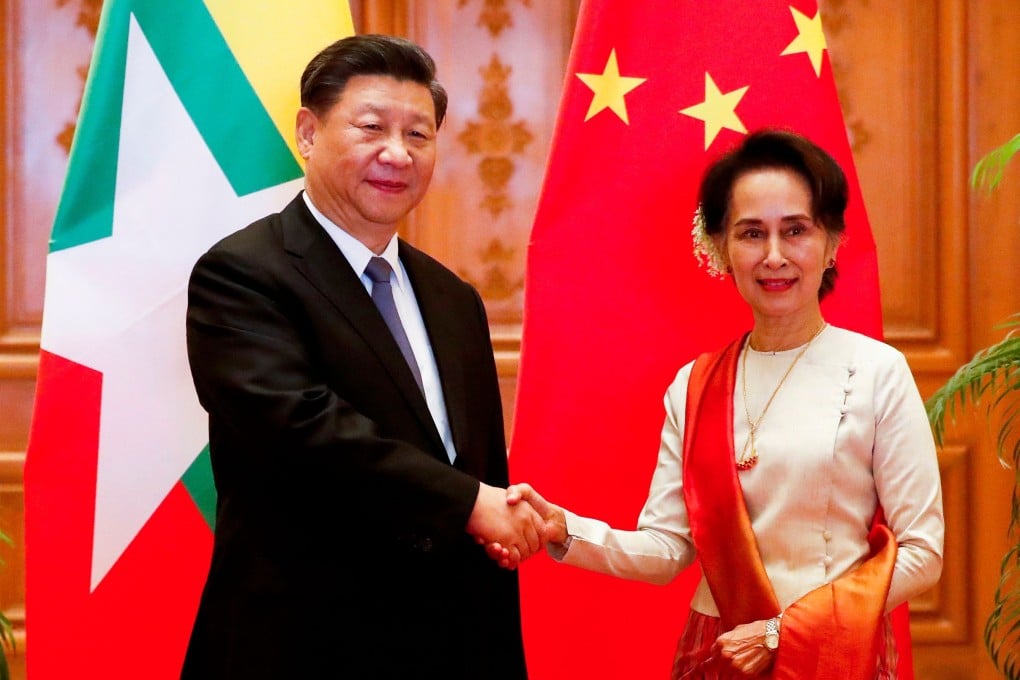Advertisement
China and Myanmar’s growing closeness could help forge united front against international critics
- Both sides are expected to support each other in areas such as the Rohingya crisis and Xinjiang following Xi Jinping’s visit
- Visit was first by a Chinese leader since 2001 and helped cement Beijing’s influence
Reading Time:2 minutes
Why you can trust SCMP

China and Myanmar sought to present a united front during President Xi Jinping’s visit last week in the face of growing international pressure
In a joint statement released after the visit on Saturday, the two sides said that they would deepen their comprehensive strategic partnership, which China regards as one of the highest levels for bilateral relations.
The two sides also “exchanged opinions” on building a “community of shared future for mankind”, one of Xi’s signature concepts for China’s foreign policy.
Advertisement
Xu Liping, from the Chinese Academy of Social Science’s Institute of Asia-Pacific Studies, said the two sides would be expected to support each other internationally on “core issues”.
Under the concept of shared destiny, Xu said that Beijing would support Myanmar’s approach to the Rohingya crisis, which has prompted a genocide hearing at the International Criminal Court.
Advertisement
Advertisement
Select Voice
Choose your listening speed
Get through articles 2x faster
1.25x
250 WPM
Slow
Average
Fast
1.25x